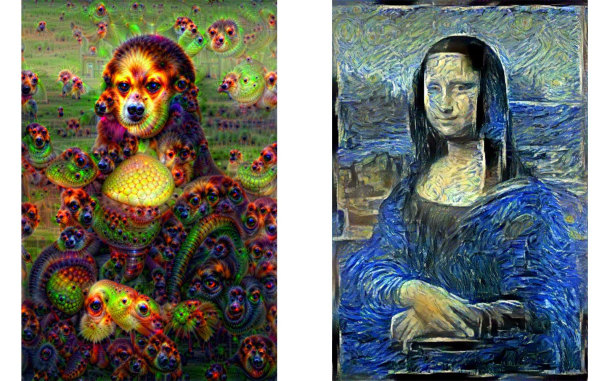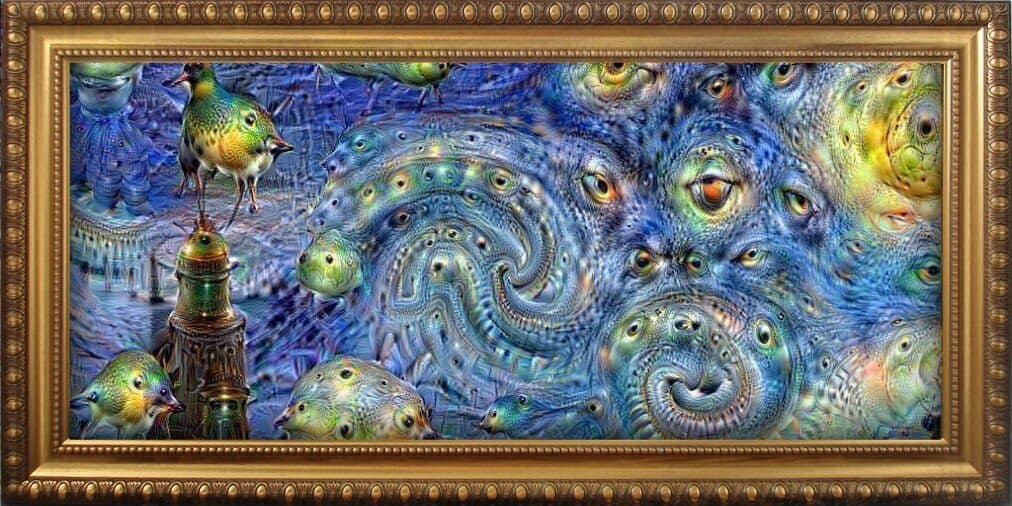
Source: Google Images/”Mona Lisa” with DeepDream effect (left) and Neural Style Transfer (right) created by P.J. Finlay. Image: Wikipedia.
I couldn’t believe it when I came across several articles written on the alleged plagiarism and outright (copyright) theft of artists’ works by AI generators. All in the name of ‘open-source’ and ‘free access for the world.’ Apparently, AI systems “are being trained on vast amounts of copyrighted work with no consent, no credit, and no compensation (Stable Diffusion Litigation, 2023).”
I’m not surprised – I saw it as an eventual situation once somebody (or, in this case, several somebodies) figured out how to copy the works of a multitude of artists, including famous artists, for the supposed intent to “teach” AI generators how to then create something new, something different and supposedly something not already copyrighted. AND make money off it.
Huh.
Getty Images and several well-known artists have filed a class-action lawsuit against companies Stable Diffusion, DeviantArt and Midjourney, claiming copyright violation:
“In a press statement shared with The Verge, the stock photo company said it believes that Stability AI “unlawfully copied and processed millions of images protected by copyright” to train its software and that Getty Images has “commenced legal proceedings in the High Court of Justice in London” against the firm.” The Verge, January 17, 2023
Stable Diffusion is a 21st century artificial intelligence software product. It is part of a category of AI systems referred to as generative AI. It’s based on a process called diffusion, where the AI program is trained to ‘reconstruct’ (their word, not mine) images that it’s been fed. The program then supposedly creates new and original (?) images. Yeah, right.
According to an article on ArtNews:
“The plaintiffs claim that these copied images are then used to create “derivative works,” a work that it “incorporate[s] enough of the original work that it obviously stems from the original,” in the Cornell Law School’s Legal Information Institute’s definition. The image generators, according to the plaintiffs, are nothing but a “21st century collage tool” that has the potential to greatly damage artistic industries and was built off of protected works.” (Read it here.)
I have to admit that I have taken images off the internet – usually from free sites like Pixabay but occasionally from Google Images – and re-mastered them by changing color, removing certain aspects… and then using them as a picture in my blog post. In other words, I don’t profit from the changed picture. These AI-generated works are a whole new ballgame and artists may be on the losing team if the lawsuit doesn’t set a precedent.
Here’s food for thought: After Korean artist Kim Jung Gi died, someone used Stable Diffusion AI to “create a model” that would reproduce works in his style. I understand being a fan of certain artists – I love Vincent Van Gogh’s works but I would never, could never, copy his work and call it mine (except for the odd paint-by-numbers of his works that I’ve done since I can’t afford the originals).
Also according to ArtNews (and this is an important distinction, perhaps):
“First, only specific images, not styles, are protected by copyright. Meanwhile, collage is a protected medium under “Fair Use,” a legal doctrine that creates exceptions to copyright law “for purposes such as criticism, comment, news reporting, teaching (including multiple copies for classroom use, scholarship, or research)” and “transformative” creative production. Whether or not the lawsuit accurately characterizes diffusion is also in question.”
This is a complex situation, without a doubt. Digital media and content lag far behind laws that might protect content creators like us. Will if affect your work? Do you think that the remixing of copyrighted works should be legal? Do you think it’s a copyright violation? (omg – stealing poor Van Gogh’s works is a TRAVESTY, in my opinion)
Perhaps only time will tell. We are heading into new and unfamiliar territories with AI and all if its capabilities (for good and bad). I fear we will reach a point where no work of art (paintings, novels, etc.) will be protected because AI experts will be able to take what they want and no one will be able to stop them.
I guess we’ll find out soon enough. In the meantime, PROTECT YOUR WORKS.
To read in full on this litigation/copyright issue:
#authors #writers #amwriting #aigenerators #stablediffusion #theverge #artnews #copyrights #contentcreators

Source: Google Images/https://mpost.io/exploring-the-value-of-ai-generated-art/
